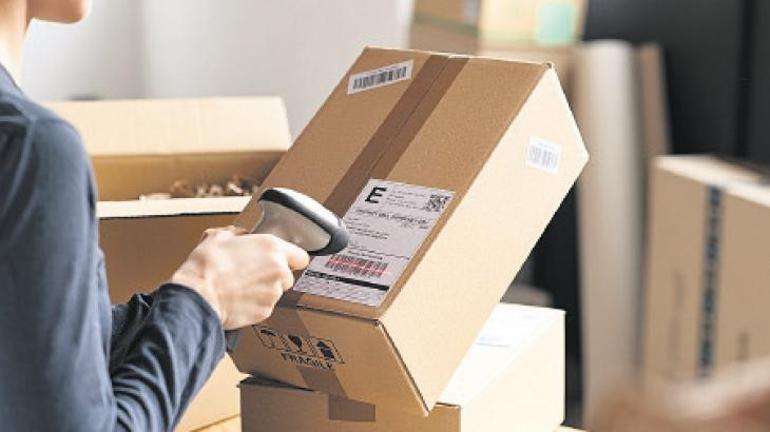Some e-commerce sites sell directly, while others may have thousands of sellers… Well, if the product purchased from the internet is defective or defective, is the website or the seller on the site responsible? Let’s take a look at a Supreme Court decision on this issue…

The internet has really made our life much easier. One of the biggest benefits is the opportunity to shop. Some customers want to physically touch, feel and try the product they are going to buy. For them, online shopping is not very preferred.
The most important benefit of shopping online is time saving. The time spent browsing online shopping sites is less and less tiring compared to the time spent shopping by going from store to store. You can make your choice by comparing hundreds of products in a short time from your comfortable seat.
But there are also disadvantages to shopping online; The product offered to the internet and the product delivered may be different; Plastic market slippers can be sent to those who think they have bought a famous brand’s sandals.
Those who want to buy a certain brand of motor oil, when they see that it is sold on the internet at an affordable price, think ‘I got the opportunity’ and buy it; Later, when he learns that the manufacturer of this motor oil only allows sales at dealers and that there is no internet sale, he realizes that the product he bought is fake.
The customer sees the obvious fault in the products with his own eyes while shopping in the store. In any case, in accordance with Article 10/III of the Law on the Protection of the Consumer, if the seller still offers a defective product for sale, the seller himself, the manufacturer or the importer must put a label containing explanatory information on the defective product on the defective product or on its packaging.
This label must also be given to the consumer or the descriptive information regarding the defect must be clearly displayed on the invoice, receipt or sales document given to the consumer. This rule is not strictly followed for defective products offered for sale on the Internet.
Responsible or not?
But the main problem is that the product purchased on the internet should not be defective, but sometimes openly and sometimes hidden defective.
Some manufacturers or sellers on the Internet sell directly on their own website. If the purchased product is defective, the seller who sells the product on its own site will be directly responsible to the consumer.
However, we all know that the product range on some large internet shopping sites is almost unlimited. Because there are hundreds of sellers on these websites. The online shopping site itself is usually not a direct seller, it features those sellers on its site. Vendors also sell directly to customers.
However, the perception is as follows; Since the product is purchased from the seller by entering the internet shopping site, the customer thinks that the website is itself as the seller. Because it is constantly exposed to the advertisements of the internet shopping site, the sellers there hardly have their own advertisements. The buyer is always in contact with the internet shopping site, until he buys a product from a seller there.
In this case, if the product purchased from the internet is found to be defective, the problem arises whether the website from which the sale is made will be held responsible as well as the seller.

Important to note: Who sold the product to you?
The thing to watch out for is who is selling the product to you. Because the seller can sometimes be the website itself. If the website itself is not a direct seller, the seller on that website is responsible. Although the website itself is featured as an identity in all advertisements and promotions, it is not responsible for defects.
According to the Supreme Court 3rd HD decision, sellers who sell products using the electronic environment offered by intermediary service provider internet shopping sites are not obliged to check the products and content they offer for sale, and to investigate whether there is an unlawful activity or situation related to this content and the products subject to the content.
Indeed, it is virtually impossible for the website owner to control and research hundreds of thousands of products offered by hundreds of sellers on websites. The Regulation on Service Providers and Intermediary Service Providers in Electronic Commerce, which was enacted based on the Law on the Regulation of Electronic Commerce, states the same.
However, I should also mention that some websites block the product price from the customer’s credit card as a provision in favor of the seller, and the provisioned amount is transferred to the seller’s account upon the buyer’s declaration of receipt of the product. In such sales relations, although the website owner is not responsible for the defect in the product, he is responsible for the delivery of the product.

‘Truffle chocolate’ issue went all the way to the Supreme Court
A real event, which was the subject of a decision of the 3rd Civil Chamber of the Supreme Court of Appeals, clearly tells us who will be responsible if the product purchased on internet shopping sites is found to be defective… Ms. Lale wanted to buy truffle chocolate. She enters a large website, likes the truffle sold by a patisserie, pays the price of the product with her credit card, and completes the sale.
Two days later, the product is delivered to the door by the cargo company. He opens the package, and what he sees is a cigarette butt inside the package. He loses all his appetite.
When Lale Hanım couldn’t get a result from the correspondence with the website, she took her breath in the Consumer Arbitration Committee. The Consumer Arbitration Committee finds Ms. Lale right and decides that the website should return the price of the product in accordance with the demand for the optional right used.
‘Intermediary’ decision
This time, the website is not happy with this decision and files a lawsuit in the Consumer Court demanding the annulment of the decision. The Consumer Court decides that even though the website itself is not a direct seller, that is, the truffle sales contract is made between the patisserie and Lale Hanım, the website receives a commission from the sales price and that the seller should be responsible for the defect like the patisserie. Anyway, since the decision is final, this time the Ministry of Justice takes the decision to the Court of Cassation with a request for annulment for the sake of law.
The Supreme Court of Appeals 3rd HD, on the other hand, stated that the internet shopping sites are intermediary service providers and that they are not among those responsible for the defect such as the seller or the seller (for example, the importer, the manufacturer) according to the Law on the Protection of the Consumer, and stated that the sellers of the internet shopping sites that include the sellers are not responsible for their defective products. decides.
This means: For example, if the food you bought from a website where you bought food turns out to be bad, the restaurant that sells you food on this site is legally responsible, not the food site itself.
